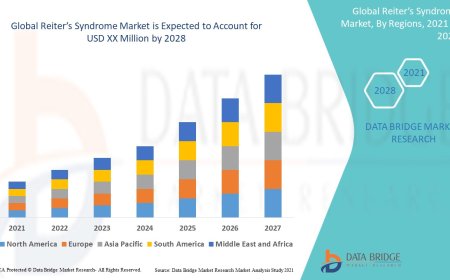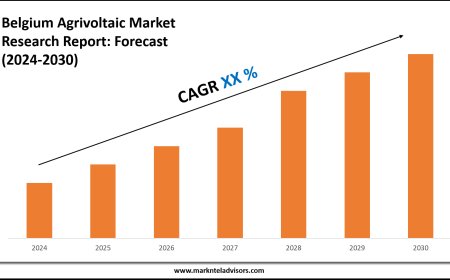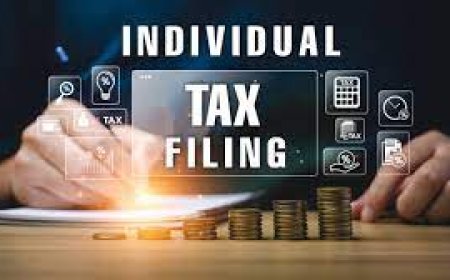What is a DSCR Loan and How Can It Benefit Your Business or Investment?
A DSCR loan allows real estate investors and business owners to secure financing based on income, not just credit scores. Learn how the Debt Service Coverage Ratio (DSCR) works and the benefits it offers for loan approval and favorable terms.

If you're a real estate investor or business owner looking to secure financing, you've likely come across the term DSCR loan. Understanding how DSCR loans work and how they can benefit you is essential for making informed financial decisions. In this guide, we'll break down what a DSCR loan is, how it works, and the significant advantages it offers for securing funding, especially for income-producing properties or businesses.
What is DSCR?
Before we dive into the specifics of DSCR loans, it's important to first understand what DSCR stands for. DSCR is an acronym for Debt Service Coverage Ratio. It is a financial metric used to determine the ability of a property or business to generate enough income to cover its debt obligations.
In simpler terms, DSCR shows how much cash flow is available to cover the debt payments (both principal and interest) on a loan. A DSCR of 1.0 means that the property or business is just breaking evenits income is exactly equal to its debt obligations. A DSCR greater than 1.0 indicates a surplus, meaning the income exceeds the debt obligations, which is favorable to lenders.
How to Calculate DSCR
The formula for calculating DSCR is straightforward:
Where:
-
Net Operating Income (NOI) refers to the income generated from the property or business after deducting operating expenses, but before interest, taxes, depreciation, and amortization.
-
Debt Service refers to the total amount of debt payments required (usually on a yearly or monthly basis) to cover both principal and interest.
For example, if a property generates $150,000 in NOI and the annual debt service is $120,000, the DSCR is:
This means the property has 25% more income than whats needed to cover its debt obligations, which is a positive indicator for lenders.
What is a DSCR Loan?
A DSCR loan is a type of financing primarily used for real estate investment and business purposes, where the lender evaluates the Debt Service Coverage Ratio to assess whether the property or business generates enough income to cover the loan's debt obligations. Unlike traditional loans, which often focus heavily on the borrowers personal credit score, DSCR loans prioritize the financial health of the property or business itself.
In essence, the focus is on the cash flow generated by the investment. If the property or business can demonstrate strong and consistent income, it may qualify for a DSCR loan, even if the borrower has a less-than-perfect credit history.
How Does a DSCR Loan Work?
The fundamental difference between DSCR loans and traditional loans lies in the way lenders assess risk. While traditional lenders are primarily concerned with the borrowers personal credit score and past borrowing history, DSCR lenders are much more focused on the income potential of the property or business that will serve as collateral for the loan.
Lenders use DSCR to gauge the risk associated with the loan. The higher the DSCR, the lower the risk for the lender. Heres why:
-
DSCR > 1.0: A DSCR greater than 1 indicates that the income from the property or business is sufficient to cover its debt obligations, plus a cushion for potential unexpected expenses or fluctuations in income.
-
DSCR = 1.0: A DSCR of 1 means the property or business just generates enough income to meet its debt obligations.
-
DSCR < 1.0: A DSCR below 1.0 signals that the property or business does not generate enough income to cover its debt obligations, which is a red flag for lenders.
In practice, lenders typically require a minimum DSCR of 1.0 to approve a loan. However, many prefer a higher DSCRaround 1.2 to 1.5because it provides a financial cushion and reduces the risk of loan default.
Why Are DSCR Loans Attractive?
DSCR loans offer significant advantages over traditional loans, especially for investors and business owners who may face challenges securing financing through conventional methods. Heres why DSCR loans are appealing:
-
Easier Qualification Process
One of the main benefits of DSCR loans is that they focus primarily on the income generated by the asset (such as a real estate property or business) rather than relying solely on the borrowers personal credit score. This can make it easier for investors or business owners with strong cash flow but poor credit histories to secure funding. -
More Accessible for Real Estate Investors
Real estate investors can benefit from DSCR loans because the lender is more concerned with the cash flow of the investment property rather than the investor's creditworthiness. If you own a rental property that consistently generates income, you may be able to secure financing for additional property purchases through a DSCR loan. -
Better Financing Terms for Strong Assets
If the property or business is generating a high level of income and has a strong DSCR, the borrower may qualify for more favorable financing terms, such as:-
Lower interest rates
-
Larger loan amounts
-
Longer loan repayment terms
-
-
More Flexible Loan Terms
DSCR loans tend to be more flexible than traditional loans. While traditional lenders may require a specific credit score range or have stringent personal financial requirements, DSCR loans assess the property's ability to generate income, allowing for more personalized and adaptive terms based on the assets performance. -
Access to Larger Loan Amounts
When the DSCR is high, lenders are more willing to offer larger loan amounts, as the income from the property or business can comfortably cover the debt payments, making the loan less risky for the lender.
Common Uses of DSCR Loans
DSCR loans are most commonly used in the following situations:
-
Commercial Real Estate Investments
Investors looking to purchase or refinance commercial properties, such as apartment complexes, office buildings, retail spaces, or industrial properties, often use DSCR loans. The rental income from these properties is used to cover the debt obligations, making DSCR loans a natural fit for real estate investors. -
Business Financing
Business owners can use DSCR loans to finance various business needs, such as expansion, purchasing equipment, or refinancing existing debt. For income-generating businesses like restaurants, hotels, and healthcare providers, DSCR loans focus on business income rather than the owners credit score.
Key Requirements for DSCR Loans
While DSCR loans offer more flexibility than traditional loans, lenders still require certain criteria to be met:
-
Minimum DSCR Requirement: Most lenders require a DSCR of at least 1.0, but a higher ratio (1.2 or above) is often preferred for better loan terms.
-
Consistent Cash Flow: The property or business must demonstrate consistent, reliable income to ensure that debt obligations will be met.
-
Strong Net Operating Income (NOI): Lenders will look closely at the propertys or businesss NOI, as this will be the primary source for debt repayment.
-
Type of Asset: DSCR loans are typically used for commercial real estate and income-generating businesses, not for personal loans or non-revenue-generating ventures.
How to Improve Your DSCR for Better Loan Terms
If your DSCR is lower than 1.0, there are several strategies you can employ to improve it:
-
Increase Revenue: You can increase rents for a property, improve occupancy rates, or expand services to generate more income. For businesses, increasing sales, launching new products, or tapping into new markets can boost your NOI.
-
Reduce Operating Expenses: Cutting down on unnecessary costs, optimizing operations, and improving efficiency can increase your net operating income.
-
Refinance Debt: Refinancing existing debt to reduce your monthly debt service can improve your DSCR, as youll have lower debt obligations to cover.
Conclusion
A DSCR loan can be a powerful tool for real estate investors and business owners looking to secure financing based on the income generated by their property or business rather than their personal credit history. By focusing on cash flow and the ability to service debt, DSCR loans offer a more flexible, accessible, and effective financing option for those with strong income-producing assets.
Whether you're a seasoned real estate investor or a business owner seeking to expand, understanding DSCR loans and optimizing your DSCR ratio can unlock greater financial opportunities. Explore this financing option with a lender or financial advisor to see how a DSCR loan can support your investment goals.





































